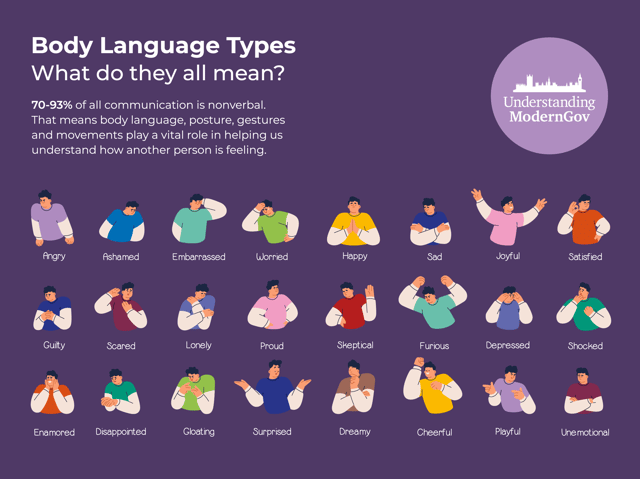The Top 4 Benefits of Active Listening
 Konstantina Dimitriadou
·
5 minute read
Konstantina Dimitriadou
·
5 minute read
Is there a difference between hearing and listening?
Research has proven that the average person hears between 20,000 and 30,000 words a day. But how many of these words do we truly understand?
There is an important difference between hearing and listening. We shouldn't assume that if someone hears us that automatically means they understand what we are saying.
In this blog post, we'll cover what active listening is, why it's important, the benefits of using active listening and top tips to improve your active listening skills.
What is Active Listening?
Active listening is a type of communication that goes beyond simply hearing what someone says. There is a focus on listening with the intent to respond, instead of just replying. This means comprehending the information and focusing on fully understanding the message before responding.
You may sometimes catch yourself in a conversation with someone where you're so busy thinking of your next point, question or making assumptions, that you forget to actually listen to what that person is saying. This is listening to reply, not respond.
Active listening may not come naturally to all of us, as you need to know how to devote energy to the conversation and show empathy and investment in what the speaker is sharing with you.
The good news is, active listening is a soft skill. And like many soft skills, these can be developed.
In this article, we will discuss the benefits of active listening. We will also explore important active listening techniques and communication strategies to help you become a more effective communicator overall.
Why is Active Listening Important?
Active listening is referred to as a soft skill that can be useful in many situations, especially in the workplace. Using active listening is a great way to develop trust between you and your team members, encourage greater collaboration and understand other peoples' feelings.
Now that we're in a digital workplace, knowing how to listen attentively is crucial for getting work done and collaborating effectively. An Accenture report concluded that 96% of people think they're good listeners, but people only retain roughly half of what is said.
How do You Use Active Listening in Conversation?
Active listening can involve making sounds that indicate attentiveness, as well as giving feedback in the form of a paraphrased rendition of what has been said by the speaker - also known as reflecting.
Another way to use active listening in a conversation is through following. The idea of following is to create space for them to speak, and explain what they want to say without interruptions. This is where it's key to use silence to your advantage and reduce the number of questions you ask.
Conversations without active listening often consist of a faster pace with rapid questions bouncing from one person to another. This lack of attentive listening encourages interruptions, people talking over each other and even misunderstandings.
Top 4 Benefits of Active Listening
1. Gain more in-depth information
You will get the opportunity to gain more information as a listener. Active listening acts as a motivation to elaborate on the topic in greater depth.
2. People feel “heard”
Effective listening requires being fully present. This means your full attention should be on the speaker and focusing on what they are saying. By doing this, you can fully concentrate on understanding the message of the speaker.
Placing all of your focus onto your conversation partner will help create strong relationships. It also means speakers will enjoy talking to you more and it can build a trusting and ‘open’ environment.
While listening, you should ignore any distractions, such as your phone, and mute your inner dialogue.
The key for active listening is placing the focus from yourself onto the person speaking.
Maintaining eye contact is a great nonverbal cue to show your engagement and makes people feel "heard".
Related: Why is Nonverbal Communication Important in the Workplace?
3. Resolves Conflict
Active listening encourages clear communication.
Clear communication helps to eradicate misunderstandings, prevents disputes and enables you to understand different points of view.
It's a great skill to have because miscommunication can be common amongst employees, clients or senior management due to poor communication practices.
Discover 7 proven ways to develop your communication skills.
4. Problem-Solving
Active listening is a key component for problem-solving. It helps you understand others' problems and respond in a helpful and informed way. In the workplace, active listening can help you to effectively collaborate to develop solutions and achieve excellent outcomes.
Learn how to improve your communication within your team.
4 Top Tips to Improve Your Active Listening
1. Use nonverbal communication to show you are listening
Your body language tells your listener what you really think without using verbal communication. Ensure that you face the speaker, use appropriate eye contact and think about your posture - use open body language and show that you're listening by leaning forward.
Take a look at the graphic below to make sure you're giving off the right body language to your listener.
2. Don't plan what to say next
This might sound a little silly, but if you're having a conversation with someone and you're planning your next comment or question, the conversation won't flow naturally.
Active listening means listening to understand, not just to reply. The conversation will flow much more smoothly if you try not to overthink your next words.
3. Don't interrupt
No one likes being interrupted, so don't do it to your speaker. It gives off the impression that you think your words or opinions are more important than theirs or you don't have the patience to listen to what they have to say.
To practice active listening, ensure that all your attention is focused on what the speaker is saying. Even if you come up with a great idea or new thought while they're mid-sentence, take the time to slow down, think about your actions and let them finish expressing themselves.
4. Stay focused on their words and nonverbal communication
If you're finding it difficult to follow along with what someone is saying, try to stay focused by repeating the words they've said in your head. Aside from verbal cues, you can understand a lot from focusing on the speakers' body language, tone of voice and facial expressions.
Mirroring the speaker's body language can also strengthen the rapport you have with them. Something as simple as fully turning your body to face them can show you are comfortable and therefore engaged in what they are saying.
If you're having an important conversation, it might help to take the conversation into a private space where you won't be distracted or interrupted.
Turn your phone off too - there's nothing worse than a buzzing phone during a conversation. You can get to your notifications after!
5. Ask Open-Ended Questions
"Yes" or "no" questions are called close-ended questions. This is because they generally only require a one word answer and lack the opportunity for the speaker to expand on a topic or give an opinion. These questions usually start with "Do, Can, Will, Have etc.". Some closed-ended questions include:
-
Did you enjoy the event?
-
Do you agree with this decision?
-
Are you busy after work?
Instead, ask open-ended questions that show your interest and allow for the speaker to expand on a topic. Asking the relevant who, what, where, why and how questions will create a more in depth and detailed conversation.
Some examples of open-ended questions you might ask include:
-
What did you think about the event?
-
How do you think we could we improve on this decision?
-
What are your plans for after work?
Master Verbal Communication With Our Interactive Courses
Whether you want to speak with more impact, work on your body language skills or communicate more effectively in a hybrid working environment, we've got a range of courses to suit your every need. View our upcoming courses and save your place.






-Feb-05-2024-03-56-51-2712-PM.jpg)

